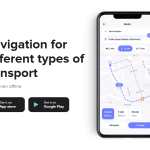Ho w many times have you heard someone say, “I’m jet-lagged.” They usually are referring to the disorientation and “heavy eyelids” one feels after switching 4 or more time zones. The human body seems to have a kind of “memory” for the previous time zone. So when the individual arrives at the destination, it takes him/her 2, 3, sometimes 4 days to get adjusted. For some reason, I don’t usually experience jet lag. When I arrive in Europe or Africa, I’m awake enough to function through the day. When I arrive back home in the USA, I can go right to sleep and sleep the whole night through. Granted, some might argue that I have some better “natural” jet lag wiring. It could be in my DNA programming, I guess. Since I can’t climb into someone else’s skin, we’ll never know. But I also think there are several tools or “hacks” that help me. The first one is just making up your mind you’re going to do it. It’s my personal belief that jet lag is, at least in part, the power of suggestion. We believe, therefore we *do*. Since we *think* it’s going to be hard, it *is*. So the first tool is to make up your mind that you’re *not* going to experience it. There’s a good movie for background on this. It’s called, “Somewhere in Time,” and my wife loves it as a “chick flick.” :-) I like it because it helps prepare me for the power of suggestion. No, I don’t believe in astro-travel. :-) I don’t think I can “think” myself into a different *year*. But it’s fun to pretend I’m in a different *time* zone at least. And that’s the first tool. Just *pretend*. Make up your mind that you’re already adjusted, and it’s my theory that it’ll help you adjust. So no matter what, resist that age-old saying, that it’s such-and-such o’clock “my body time.” Just don’t go there. Explain to your friends that you’re following a Brigada “tool” or “hack” and you’d appreciate them not reminding you. Tell them the story about Christopher Reeves’ character in Somewhere in Time… the way that when he just saw the present-day date on the penny, it was enough to “jar” him out of the old-fashioned dimension he was living. (And while they’re wondering if you’re nuts, you’ll have time to change the subject. :-) ) Either way, just do it. Pretend. Imagine you’re in the new time zone. Set your watch to it. Pretend your hungry at the right time. Pretend you’re awake at the right time. *Believe!!!”* :-)
w many times have you heard someone say, “I’m jet-lagged.” They usually are referring to the disorientation and “heavy eyelids” one feels after switching 4 or more time zones. The human body seems to have a kind of “memory” for the previous time zone. So when the individual arrives at the destination, it takes him/her 2, 3, sometimes 4 days to get adjusted. For some reason, I don’t usually experience jet lag. When I arrive in Europe or Africa, I’m awake enough to function through the day. When I arrive back home in the USA, I can go right to sleep and sleep the whole night through. Granted, some might argue that I have some better “natural” jet lag wiring. It could be in my DNA programming, I guess. Since I can’t climb into someone else’s skin, we’ll never know. But I also think there are several tools or “hacks” that help me. The first one is just making up your mind you’re going to do it. It’s my personal belief that jet lag is, at least in part, the power of suggestion. We believe, therefore we *do*. Since we *think* it’s going to be hard, it *is*. So the first tool is to make up your mind that you’re *not* going to experience it. There’s a good movie for background on this. It’s called, “Somewhere in Time,” and my wife loves it as a “chick flick.” :-) I like it because it helps prepare me for the power of suggestion. No, I don’t believe in astro-travel. :-) I don’t think I can “think” myself into a different *year*. But it’s fun to pretend I’m in a different *time* zone at least. And that’s the first tool. Just *pretend*. Make up your mind that you’re already adjusted, and it’s my theory that it’ll help you adjust. So no matter what, resist that age-old saying, that it’s such-and-such o’clock “my body time.” Just don’t go there. Explain to your friends that you’re following a Brigada “tool” or “hack” and you’d appreciate them not reminding you. Tell them the story about Christopher Reeves’ character in Somewhere in Time… the way that when he just saw the present-day date on the penny, it was enough to “jar” him out of the old-fashioned dimension he was living. (And while they’re wondering if you’re nuts, you’ll have time to change the subject. :-) ) Either way, just do it. Pretend. Imagine you’re in the new time zone. Set your watch to it. Pretend your hungry at the right time. Pretend you’re awake at the right time. *Believe!!!”* :-)












Though Doug may be able to *tell* his body, mind and emotions that he is where he isn’t, or *feels* some way that he really doesn’t, some of use *know* that we have traveled 16 hours in a pressurized cabin that has us breathing air as if we were at 8000 feet elevation. (Yes, that is the elevation to which aircraft are pressurized. And if any of you have climbed some 8000 foot high mountain, you know the air is thin!) However, if you can add a small 2 ounce bottle to that wonderful 16-pocket vest he describes, add this one. It is a liquid called LIFE LEADER OXYGEN BOOST. There are some brands available in the USA. However, they are acidic based, and in the long run, are more harmful to your health than helpful. But, a gentleman in South Africa named Kevin, developed one that is alkaline based. Using it in conjunction with the exercise routines the airlines now propose, light meals (The airlines are making that easier; some don’t even offer meals. Or, if they do, the extra cost makes me say, *No!*), avoid the salty pretzels and sugary sodas and you will arrive without jet lag, going east or west. Email Kevin at KCN –at- iafrica –dot- com Phone: 011-27-31-767-0982
I take a melatonin when it is time to sleep, which is my routine when i go to bed anyway. (if it is not yours, try it before depature, and start with a very small dose….). If that doesn’t work I do add a 25mg benadryl. I’m accustomed to it, and know it won’t cause me problems if I need to wake up in hurry. Again, you’ll want to try before you fly.
I also know people who swear by the product “no jet lag”. I thought it was a joke, but it is a real product…with a loyal following.
OK Doug — you’ve had your fun. Now, what do you really do?
Actually, the truth is, … that’s what I really do! :-) And for some reason, it works! :-)
A very simple, but successful way for me to adjust rapdily is by identifying the night hours of the new time zone and start sleeping then as far before arrival as you can. That means I don’t allow myself to sleep on the plane until it’s actually a reasonable time to sleep (or at least close) in the new time zone. And a few days before leaving I arrange my scheudle to have no morning commitments so I can stay up until the wee hours and sleep until the afternoon.
A 12 hour timezone switch doesn’t even phase me after a couple days of pushing my sleep back and back to my destination time.
Come on, Doug! If you are going to pretend to comment on how to beat jet lag at least do a little research on the subject! Especially if it never affects you. Just telling us it never bothers you and that we should think positively about it is a waste of my time and is insulting to those of us who travel internationally on a regular basis and are very affected by jet lag.
Andrew, please forgive me if it seemed I was somehow negating the fact that you do indeed feel the brunt of jet-lag. If you re-read my original item, I hope you can hear how many times I put up the disclaimer, in more ways than one, that “this was only a personal solution for me…”, and that “maybe it’s just my wiring”, and that “your mileage may vary.” Truth is, I really do believe that the tips I gave can help people. I just returned from having led an 8-person group across a 11-time-zone mission trip. Several of them (more than one) have already told me that they used my tips — no nap, sleep at the right time, “think” and “pretend” they’re adapted,” etc. — and several have already commented that the strategy really did seem to help them. So again, just as you caution me not to force my wiring on you, please don’t assume that just because these tips might not work for you, that doesn’t mean they won’t work for someone else.
The more useful approach, in my opinion, rather than telling me not to offer the solutions that have helped me, might be to ask our Brigada readers (including you, Andrew) to let us know the tips (and research) that have helped each of them. *That* is the power of Brigada. No, I don’t have the time to read and research all that I would like to about all these topics. So Brigada gives the chance for you and other participants to share “lessons learned” from research they’ve already done.
Make sense Andrew?
Doug
I have found a couple of other tips in addition to the “sleep as close as possible to the time zone you’ll be arriving in” idea. No caffeine drinks while flying. Caffeine dehydrates as well as keeps you awake. Also, if you do drink, then no alcoholic beverages either – these also dehydrate. Stick with water – lots of it. Finally, try to eat only at the times that you would eat in the new time zone. (This may require that you carry some snacks with you for that purpose.) Whenever I’ve done all these things faithfully, I’ve had an easier time with jet lag. On a couple of occasions, I’ve even had no jet lag. Hope this helps.